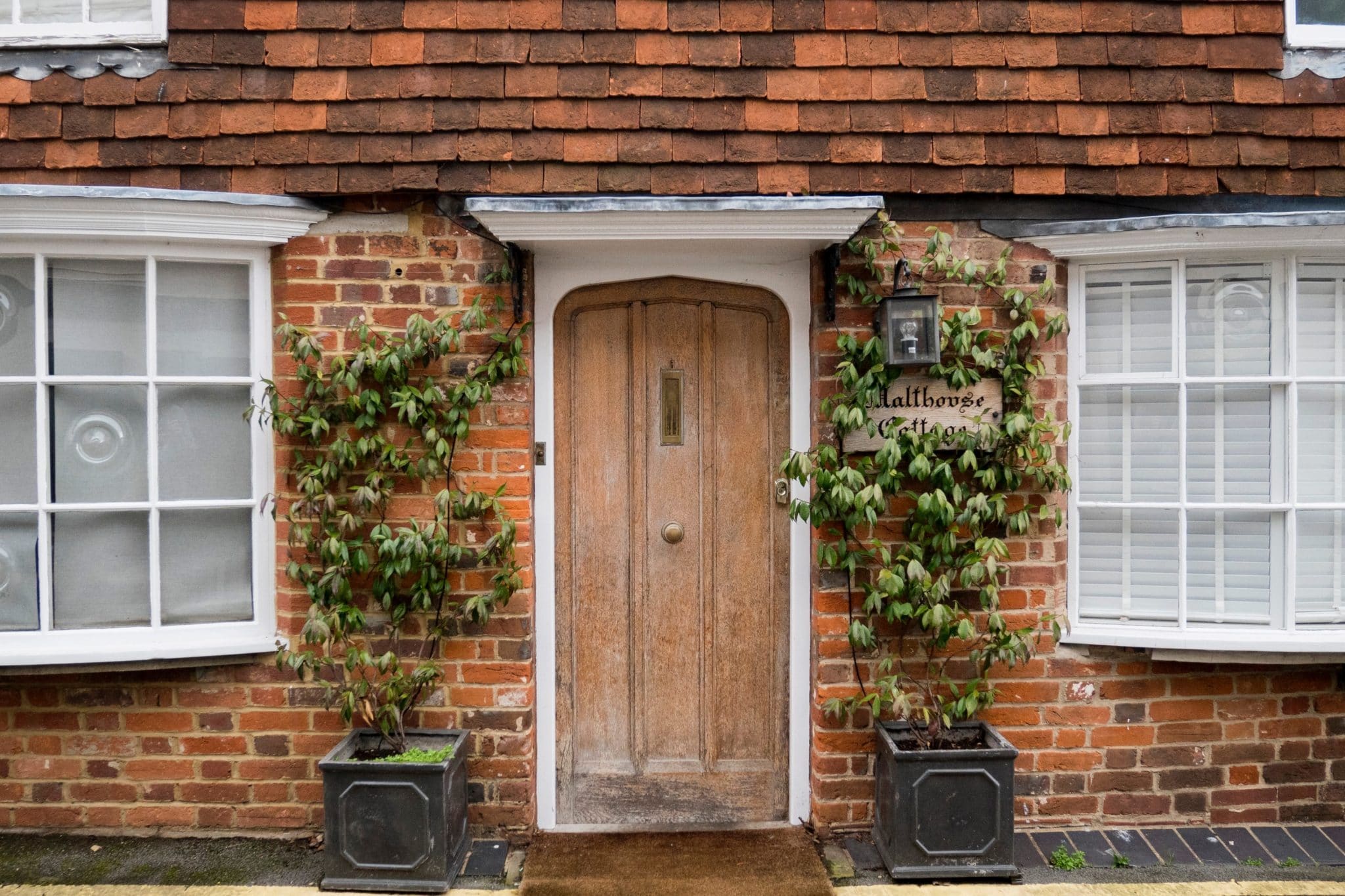Home Again, Home Again: Tips for Inspecting One Home Multiple Times
By Alyssa Cink
Last Updated November 9, 2023

 Have you ever returned to one home multiple times within the same month, week, or even day for a second buyer?
Have you ever returned to one home multiple times within the same month, week, or even day for a second buyer?
You wouldn’t be alone. In fact, it’s a relatively common phenomenon.
In a forum on the International Association of Certified Home Inspectors’ (InterNACHI) website, Michael Marlow of Veteran Home Inspections in Texas stated he once inspected the same property five times. The house was a flipped home that just “kept getting worse,” he said.
In the same forum, Larry Kage, a retired inspector in Michigan, described inspecting the same home for two back-to-back clients in one day.
“The second client passed the first client about a block away,” Kage wrote. “I was putting away tools for the first client and getting them out for the second client. … That was close and funny. I almost started talking [to the second client] about a defect that I knew was there before we could see it.”
Although these scenarios are not rare by any means, they tend to stir up questions. Many inspectors want to know: Should I tell clients that I’ve inspected the property before? If one of my employees or I have already inspected the home, should I review the previous report before inspecting it again? Or is it better to re-inspect with fresh eyes? If I inspected the property just a few days ago, can I sell the first buyer’s report to the second buyer?
We’re addressing these questions to help you safeguard your license, coverage, and business when inspecting one home multiple times.
What kind of inspections are we referring to?
Before we dive in, we’ll need to clarify which scenario we’re describing. In a previous article, we defined a re-inspection as an additional, visual examination of a property for the same clients. Such re-inspections happen for two reasons:
- The same client asks you to re-inspect after making repairs or other modifications.
- You return to the property to evaluate an area that was inaccessible during the original inspection.
However, this article tackles a different scenario. What we’re referring to here is evaluating one property for different people—but not the same people who initially hired you. If multiple buyers are competing for a home on the market, several of them could hire you to perform back-to-back inspections before they put down offers. Or, the deal might’ve fallen apart for your initial clients, leading to another wave of potential buyers. You may also enter this scenario if the property you evaluated comes back on the market again.
So how can you navigate these scenarios while managing your risk? Let’s tackle the frequently asked questions to find out.
What to Tell New Clients
Should home inspectors tell clients if they’ve already inspected the property?
This raises a few ethical concerns, wrote Reuben Saltzman of Structure Tech in Minnesota in his blog post “Same House, Second Inspection.” Having already seen the property, returning inspectors possess intimate knowledge about its condition, he said. Some buyers may even prefer to hire an inspector who’s already familiar with the home. As such, many inspectors wonder if it violates their code of ethics to inform the client they’ve already inspected it.
Neither InterNACHI nor the American Society of Home Inspectors (ASHI) has released an official rule requiring or prohibiting inspectors from informing the second client. (You can review ASHI’s and InterNACHI’s respective codes of ethics on their websites.)
But for some home inspectors, like David Valley of Massachusetts Home Inspections, doing so creates an opportunity to set clearer expectations with clients. Valley tells buyers that, even though he’s seen the property before, he’ll do his due diligence to inspect it again with fresh eyes.
“I always revealed to my second buyer that I’ve been to the house previously and I will re-inspect the house as if it was my first time there,” Valley posted in the aforementioned forum.
Others, like InterNACHI founder Nick Gromicko, discourage telling a client that another buyer was interested enough in the home to solicit an inspection for it. Gromicko argues that doing so reveals too much information about the first client to the second, putting the first at a disadvantage.
Ultimately, unless your state or association’s ethical code directs you otherwise, this comes down to your personal discretion. You may want to establish a set procedure so you and your employees act consistently on matters like these.
Reviewing Old Reports
Should you review previous reports? Or is it better to inspect with fresh eyes?
In practice, there isn’t an official rule preventing inspectors from referencing old reports. Saltzman wrote that, if his company has already written a report on a home, re-reading that report before he returns gives him an advantage to finding potential defects.
However, from a risk management standpoint, we advise against referencing old inspection reports. While ASHI’s and InterNACHI’s ethical codes don’t address this directly, they both uphold that your practices should keep you fair and impartial. Reviewing older information might affect your ability to be objective and open-minded.
New Pre-inspection Agreement Signed
If you inspect one home multiple times within 24, 48, or 72 hours, do you need to get a pre-inspection agreement signed every time?
Yes, absolutely. Even though you’ve examined the property before, inspections for new clients are new inspections. Each inspection needs its own contract signed and report written.
Why? Contracts are between the two signing parties. If you don’t have an agreement with your new clients, you have no inspection terms with them. This opens you up to heaps of liability. Furthermore, if you lack a signed pre-inspection agreement, you violate the terms of your insurance policy and, therefore, may not be eligible for coverage should a claim arise. Read our article on pre-inspection agreement signatures to learn more.
New Inspection, New Report
Now, the golden question: If you inspected the property yesterday, or even earlier that day, do you need to inspect it all over again? Can’t the second client just buy the first client’s report?
No. As a sales transaction, your first report belongs to the original client who solicited it. ASHI’s SOP says “inspectors shall not disclose inspection results or client information without client approval,” unless said conditions pose an immediate safety risk to the occupants. Therefore, you cannot sell or share old reports. Doing so would not only be a disservice to the second client, who wouldn’t get the most accurate report; it would also open you up to serious claims risk.
After all, a home inspection is a snapshot in time. A broken toilet or serious rainstorm can cause drastic changes in a home’s condition overnight. Try as you might to perform a thorough service, you can’t predict new defects that may emerge or how existing ones may exacerbate within hours’ time.
Furthermore, neglecting to fully inspect and report for each client on the scheduled day and time will likely mean violating your standards of practice (SOP). For example, ASHI’s purpose and scope states that: “Home inspections performed using this Standard are intended to provide the client with information about the condition of inspected systems and components at the time of the home inspection” (emphasis added). If you’re giving your second client a report from an inspection that took place before their scheduled appointment, then you aren’t reporting the condition from the actual time of inspection.
Regardless of how many times you’ve seen the property, or how recently, perform each inspection as if you’ve never been there before. New clients mean a new contract, new report, and full inspection fee.
Carry Home Inspection Insurance
Whether you’re inspecting a home for the first time or the fifth time, you need insurance to protect your business from possible errors and omissions (E&O) and general liability (GL) claims that could come from that inspection.
As an exclusive home inspection insurance provider, we know the industry’s top claims inside and out. We built our E&O and GL policies to serve your business’ unique needs. Plus, we offer up-to-date, state-specific inspection agreements for our insured inspectors at no additional cost. If you are insured with us and want a copy of our agreement for your state, or if you’re not a client but have questions about our contracts, send an email to agreements@inspectorprotect.com.
Interested in our first-rate coverage and inspector-centric customer service? Apply today to receive a no-obligation quote.







